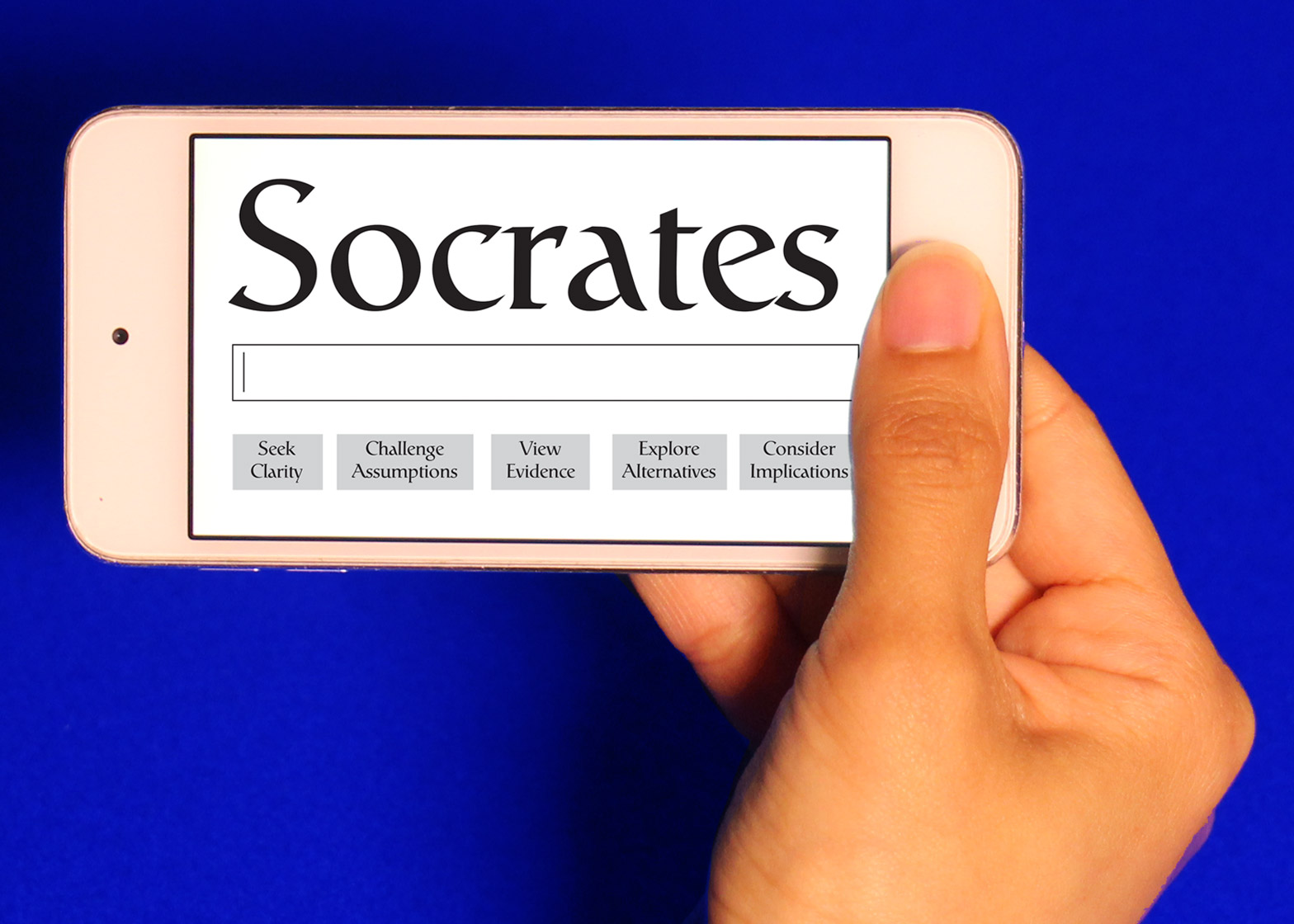Graduate shows 2016: Royal College of Art graduate Ted Hunt has designed a search engine that allows users to search the web using principles based on the Socratic method.
Classical Greek philosopher Socrates used the method of disciplined questioning to help explore complex ideas, unravel problems and analyse difficult concepts.
Hunt's project combines his principles with Google Custom Search technology to provide the answers to five search buttons – Seek Clarity, Challenge Assumptions, View Evidence, Explore Alternatives or Consider Implications.
The MA Design Interactions graduate demonstrates his search tool with one of Google's most-searched phrases – "What is love?"
When Viewing Evidence, a user is directed to fact-based websites such as Wikipedia and Quora, but when Considering Implications, the suggested results include articles exploring the physical and mental effects of falling in love.
The search tool forces users to "question our questions" rather than finding fast results that confirm pre-existing opinions.
"Much has been written about technology's tendency to trap us into 'search bubbles' and solely affirmative 'echo chambers', but little is done to proactively help us out of these traps," explained Hunt. "Socratic Search is a tool to help burst search bubbles and open the doors of echo chambers."
By emphasising the different results available through Google Custom Search, his project questions the assumption that technologies themselves are neutral.
"The biases of technology, and particularly search engines, are often hidden within algorithms that we have little or no control over, or indeed awareness of," he said.
Google's Custom Search technology allows a user to embed a search engine into their own website. It is based on Google's core search engine, but its appearance can be modified and its search algorithms altered to provide results with different parameters.
The Socrates Search Engine is part of the designer's ongoing research project, titled Design for an Entrance to the Internet and inspired by British architect Sir John Soane's Design for an Entrance to London.
Although Soane's plan was never realised, Hunt sees it as one that may have redefined how London was perceived and accessed in the 19th century.
The Socratic Method forms the basis of critical thinking. The method involves having one philosopher try to disprove the thesis of another by inviting them to agree to contrary propositions that would rule the original thesis untenable.
The philosopher defending this thesis has to admit that it has turned out to be false.
Dezeen has teamed up with the Royal College of Art as media partner for its graduate exhibition, ShowRCA, which runs from 26 June to 3 July.
Fellow graduate Hyerim Shin is displaying a toaster that sneezes out bread crumbs and a vacuum cleaner that poos as part of her range of "cute" products.

